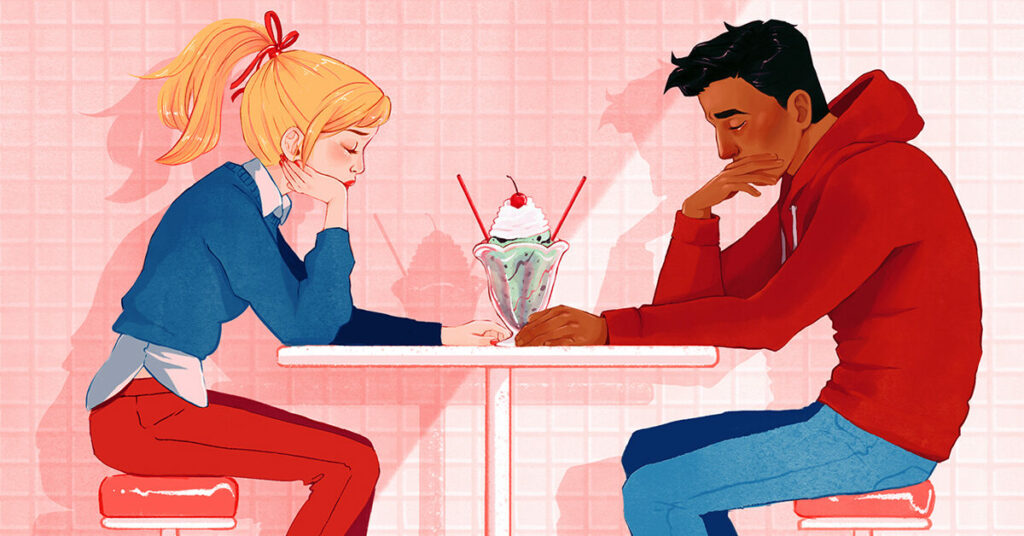Relationship depression can be a difficult experience to go through. It can feel like everything is going wrong and you have no control over the situation. If you’re feeling like this, don’t be afraid to reach out for help. Many people can help you get through this difficult time. In this guide, we’ll discuss the symptoms of relationship depression, what you can do to get help, and where to find support.
Contents
- 1 What is Relationship Depression?
- 2 The Different Types of Relationship Depression
- 3 Causes and Origins of Relationship Depression
- 4 Symptoms of Relationship Depression
- 5 Relationship Depression Treatment: Medications and Counselling
- 6 Relationship Depression Prevention: Habits and Healthy Behaviors
- 7 Conclusion
What is Relationship Depression?

Relationship depression is a state of sadness, loneliness, and hopelessness that can develop in relationships. It’s often caused by factors like unresolved conflicts, communication problems, or faulty assumptions about the relationship. Relationship depression can have a serious impact on both partners’ quality of life.
This type of depression typically affects people in close relationships, such as spouses, co-workers, or friends. But it can also affect single people who are in long-term relationships. Relationship depression is often triggered by a stressful event or change in the relationship, but it can also develop over time if the relationship is stagnant.
Relationship depression usually lasts for several weeks to months. But it can also go away on its own without any treatment. If you’re experiencing relationship depression, talk to your doctor or therapist about what you can do to improve your situation.
The Different Types of Relationship Depression

There are many types of relationship depression, and each person experiences it differently. However, all forms of relationship depression share some common symptoms. Here is a comprehensive guide on the different types of relationship depression and their symptoms.
1) Social withdrawal: This form of relationship depression is characterized by a lack of interest in social activities and a decline in the frequency of social interactions. People with social withdrawal often feel lonely and isolated. They may also experience feelings of sadness, worthlessness, or guilt.
2) Emotional isolation: People with emotional isolation tend to withdraw emotionally from their partner and become less communicative. They may become preoccupied with their thoughts and feelings, or they may avoid interacting with their partner altogether.
3) Disinterest in sex: People with disinterest in sex may have trouble getting aroused or experiencing sexual pleasure during intercourse. They may also experience difficulty reaching orgasm.
4) Destructive behaviors: People with relationship depression often exhibit destructive behavior such as drinking excessively, smoking cigarettes, or developing an addictive personality. These behaviors serve to numb the pain that they are feeling inside.
5) Loss of interest in activities that were once enjoyed: People with relationship depression often lose interest in activities that used to be their favorite. This includes hobbies, interests, and activities that used to bring them joy.
If you are experiencing any of the symptoms described above, it is important to seek professional help. Relationship depression can be a very serious condition, and untreated it can lead to several complications including social isolation, loss of job or income, and even suicide.
Causes and Origins of Relationship Depression

The origins of Relationship Depression are complex and often unknown. There is no single cause, but a variety of factors may contribute. Some of the possible causes include:
Problems in the relationship itself
One of the main sources of Relationship Depression is problems in the relationship. Problems can include disagreements, conflicting interests, and a lack of communication. If these problems are unresolved, they can lead to feelings of loneliness and isolation, which can in turn lead to Relationship Depression.
Individual Differences
One of the main sources of Relationship Depression is individual differences. This means that different people respond differently to relationships, and some people may be more prone to experiencing depression in their relationships. This is likely due to factors such as personality type, stress levels, and previous experience with relationships.
Inadequate support or therapy
If problems in the relationship are not resolved, they can lead to feelings of inadequacy or frustration. These feelings can then lead to Relationship Depression. To prevent this from happening, couples should seek out counseling or other forms of support from friends and family members.
Medications
Some medications can also cause Relationship Depression. This is particularly common for antidepressants, which are often prescribed to treat mental health conditions such as depression. If you are taking medication for a mental health condition, it is important to speak with your doctor about any potential side effects.
Problems with communication within the relationship
Also known as communication breakdowns, problems with communication within the relationship can lead to feelings of loneliness and isolation. This is because it becomes difficult to connect with one’s partner emotionally or verbally.
Issues surrounding trust or commitment
There may be issues surrounding trust or commitment that are contributing to Relationship Depression. These can include doubts about whether or not the relationship is worth staying in, fears of abandonment, or concerns about the future. If these issues are not resolved, they can lead to Relationship Depression.
Substance abuse can also be a significant contributor to Relationship Depression. This is because substance abuse can damage relationships and lead to feelings of isolation and loneliness. If you are struggling with substance abuse, it is important to get help from a professional.
Issues around power and control in the relationship
Suicide is the second leading cause of death in adults aged 18-44, and suicide rates are highest among those who are in relationships. Issues around power and control can be a major contributor to Relationship Depression. This is because relationships can often be a source of power and control for people who are struggling with mental health issues. If these issues are not resolved, they can lead to Relationship Suicide.
Symptoms of Relationship Depression
There are many symptoms of relationship depression, but here are a few that are most commonly reported.
1. You feel a lack of interest in or enjoyment in your relationship.
2. You find it difficult to express your feelings to your partner.
3. You have difficulty communicating with your partner and feel that you are not getting the same response back from them as you used to get.
4. You often feel overwhelmed and helpless in your relationship, as if everything is falling apart.
5. You find yourself withdrawing from activities that used to be enjoyable in your relationship, such as going out or spending time with friends.
Relationship Depression Treatment: Medications and Counselling
There are many ways to treat relationship depression, and a variety of medications and therapies are available. Sometimes, therapy or medication is the only way to get relief from depressive symptoms. However, there is no one-size-fits-all approach to treating relationship depression. The key is to find an approach that works best for you and your partner.
When you want to take help for relationship depression, you can consult a counselor that specializes in this type of therapy. Counseling can provide you and your partner with support and guidance as you work through your problems. Counselors can also prescribe antidepressants or other medications if needed.
If medication is the only approach that works for you, it is important to talk to your doctor about all of your options. There are a variety of antidepressant medications, each with its own set of side effects and benefits. It is important to discuss all of your options with your doctor before starting treatment.
Relationship Depression Prevention: Habits and Healthy Behaviors

Relationship depression is often a result of unhealthy behaviors and can be prevented with some healthy habits.
Below are 8 tips to help prevent relationship depression:
1. Make Time for Your Relationship: Make time for your relationship by setting aside time every day to talk and spend time together. If you can’t make it a priority in your schedule, it will likely take a back seat to other activities.
2. Don’t Compare Yourself to Others: Comparison is one of the biggest causes of this type of depression. It can be difficult to see your relationship in a positive light when you compare yourself constantly to others. Try not to do this and focus on your strengths instead.
3. Get Enough Sleep: Getting enough sleep is essential for both your mental and physical health. When you’re tired, you’re more susceptible to feeling anxious and depressed. Make sure to get at least 7 hours of sleep each night.
4. Exercise: Exercise has been shown to have a positive impact on mood and anxiety levels, particularly in those who are prone to depression. Even 30 minutes of exercise daily can help improve your mood and reduce stress levels.
5. Connect With Friends and Family: When you’re feeling down in the dumps, it can be helpful to spend time with friends and family. This will help you get out and socialize, which is important for improving your mood.
6. Eat Well: Eating healthy foods can help improve your mood and overall health. When you eat a balanced diet, you’ll not only feel better physically, but you’ll also have more energy to deal with stress in your life.
7. Take Care of Your Mental Health: Taking care of your mental health is essential for overall health. If you don’t feel good mentally, it will impact your physical well-being as well. Make sure to get enough sleep, exercise, eat a healthy diet, and connect with friends and family regularly to ensure that your mental health is top-notch!
8. Avoid Negative Thinking: It’s easy to get into a negative mindset when things are going bad in your relationship. Try not to dwell on the negative thoughts and instead focus on the positive aspects of your relationship.
Conclusion
It can be tough when you’re in a relationship and things aren’t going well. You might feel like you don’t have any control over your situation, that your partner is never willing to try anything new, or that they just don’t care about you. Relationship depression can make it hard to get out of bed each day, let alone stick around long enough to resolve the problems that are causing you pain. In this comprehensive guide, we will outline the different types of relationship depression and offer tips on how to deal with them. From there, it won’t be impossible for you to start moving forward again – all it takes is a little bit of effort and perseverance. So if you find yourself dealing with relationship depression regularly, read through this guide and see whether any of the suggestions might work for you.
Hope this article was of help to you! If you are suffering from mental health disorders, you may seek help from Therapy Mantra. We have a team of highly trained and experienced therapists who can provide you with the tools and skills necessary for overcoming mental health disorders. Contact us today to schedule an online therapy or download our free Android or iOS app for more information.


